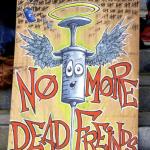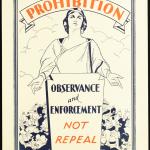Early this month, the Department of Labor sued UMR INC, a subsidiary of the United Health Group of Wisconsin, which administers thousands of emplo
Policy & Ethics
OnPoint NYC, the harm reduction organization tasked with opening and operating New York City’s two overdose prevention centers (OPCs), announced that since the two c
Two weeks – the 14-day Rule
Consider a company producing excess carbon emissions. They can comply with the new caps and purchase carbon credits to offset their excess.
Criminal law is designed to protect the populace (and the state) from wrongdoings by punishing those who committed bad acts, typically with prison time and/or a fine, as a deterrent to those considering such activities in the future.
The decriminalization of Hemp has served to emphasize the twisted relationship among drug use, law enforcement (e.g., impaired driving), and also empl
Overdose deaths recently reached a
On July 13, the Food and Drug Administration (FDA) finally allowed women to access one birth
The Kansas Highway Patrol is using a new device called SoToxa, which is marketed by Abbott, to help detect people who are driving while high on drugs.
The Food and Drug Administration announced this morning that it has granted marketing approval for the over‐the‐counter sale of one type of bir












